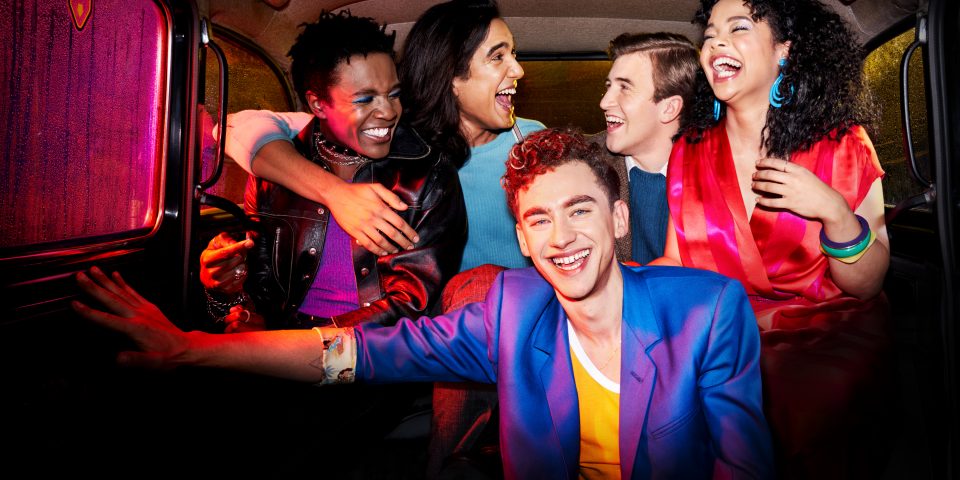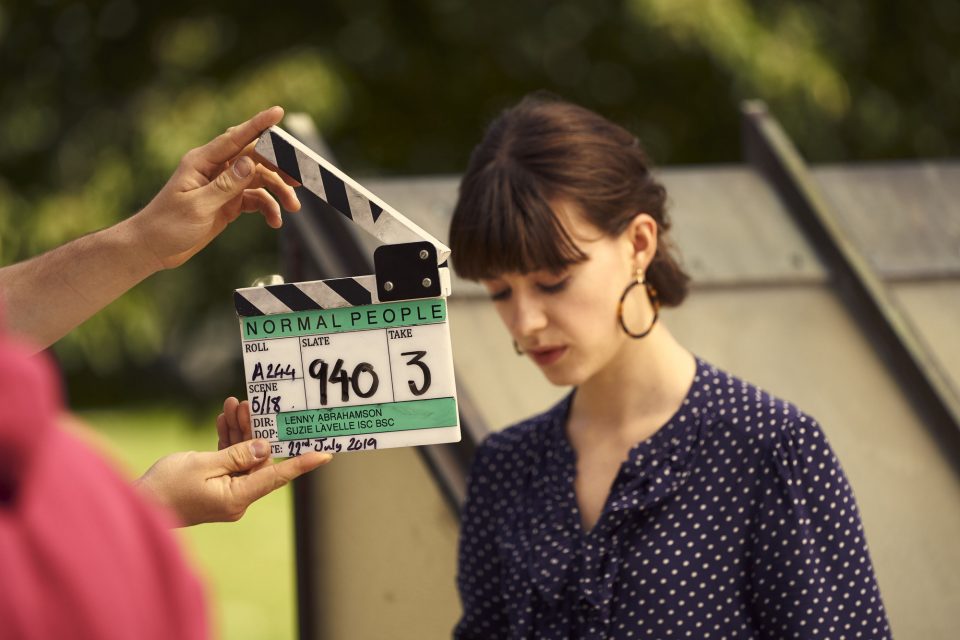Screenshot: Will nightclubs really reopen in June?

This week:
**Media Moment of the Week: Telly’s still got welly
**Will nightclubs really reopen on 21 June?
**The BBC turns back time
Media Moment of the Week: Telly’s still got welly
In the age of Silicon Valley streaming giants and relentless references to “content” and “eyeballs”, it’s easy to forget that TV can, sometimes, be more than just a way to fill the empty evenings or top up the advertising coffers.

This week we had a timely reminder of the power of the small screen thanks to Channel 4’s It’s A Sin, which tells the story of a group of gay men living through the HIV crisis in 1980s Britain. Not only has the show racked up bumper viewing figures, it also contributed to a doubling of HIV test orders in the first week of February and a huge increase in enquiries to HIV and sexual health charity Terrence Higgins Trust.
Will nightclubs really reopen in June?
There was, it must be said, quite a lot to be cheery about for the UK’s arts and culture sectors in this week’s bumper Budget. Riding a wave of Instagram-fuelled popularity, Rishi dished out yet more helpful handouts, including a further £300m for the Culture Recovery Fund, more support for the self-employed and extensions to the furlough scheme, business rates relief and VAT reducation.
One sub-sector, though, is still not happy. Nightclubs, which have long bemoaned a lack of specific support, branded the spending plan “ridiculous” and warned the chancellor was at risk of “snatching defeat from the jaws of victory”.
The troubles facing the night-time economy are nothing new (I was banging on about it back in October). Clubs have largely remained shuttered since the first lockdown a year ago, and will likely be the last businesses to reopen. The financial damage has been so great that MPs and industry chiefs last month issued a plea to rescue the sector from “extinction”.
But now it’s not just the finances that clubs are worrying about. Under the government’s tentative lockdown roadmap, the sector could reopen from 21 June. It’s a date NTIA boss Michael Kill describes, ominously, as an “opportunity”. Why? Because clubs are also facing a looming logistical nightmare.
Unlike pubs and restaurants, clubs cannot feasibly open at reduced capacity or with social distancing measures in place. When it comes to raving, it’s all or nothing. The question, then, is how to make this happen. While the industry is looking into additional cleaning methods, including pathogen-reduction systems in ventilation, its reopening plan is primarily based on creating Covid-free bubbles within nightclubs. Vaccine passports, now almost a certainty for reopening some parts of the economy, are anathema to club owners, at least in the short term. After all, the majority of their clientele are in age groups that likely won’t be jabbed until the autumn.
The “bridging mechanism”, then, is testing. Industry chiefs have explored a number of options from rapid testing on the door to so-called nomad testing, test-validated QR codes and even breathalyser tests (it’s not clear if these will also measure alcohol levels…) But while these systems will work for major scheduled events and large-scale venues, the outlook is not so clear for smaller players. How, for example, can clubs and bars on the high street carry out testing? And would the rigmarole of advanced testing put punters off a casual night out completely? Then there’s the issue of costs. Rapid tests cost between £5 and £7 a pop which, for many smaller venues, is simply not viable. If testing is mandatory, therefore, the industry is calling for the government to foot the bill.
The reality of reopening, then, is rather more complicated than it may appear. Industry chiefs held talks with government officials this week, and pilot programmes are underway. But there’s still a lot more work to do before Brits can get their dancing shoes back on.
The BBC turns back time

While the rest of the world trudges inexorably towards modernity, the BBC seems pretty happy with the status quo, thank you very much. Franky, given the amount of pressure in the current political landscape, you can hardly blame it. This week, in the mother of all throwbacks, the broadcaster announced that BBC Three will return to TV screens in 2022 after a six-year hiatus as an online-only channel.
The move, first mooted by execs in W1A last year, comes on the back of a string of hugely successful youth-focused commissions for the channel. Fleabag and Killing Eve attracted such a large fan base that they were soon shifted to primetime drama slots on BBC one. Normal People, the adaptation of Sally Rooney’s bestselling novel, became the most popular show in iPlayer’s history with a record 62.7m requests.
The decision to take BBC Three off air was designed to save £30m after the corporation’s crippling funding agreement in 2015. But now, amid warnings the Beeb is facing a “lost generation” due to the rise of streaming services such as Netflix and Amazon Prime, doubling down on youth audiences seems a sensible strategy. The Beeb knows many of its big-hitters come from BBC Three, and has already pledged to double the channel’s budget over the next two years in a bid to capitalise on this success.
But the decision to bring BBC Three back on air will raise eyebrows. For its part, the corporation argues there’s a “significant” untapped audience among younger viewers who watch traditional TV, and insists that running a broadcast and online channel side by side will deliver the most value. To say this argument runs contrary to received wisdom would be an understatement.
Regardless of its reasoning, though, the decision highlights the fundamental contradictions facing the BBC. As a publicly-funded institution, the Beeb is bound by Royal Charter to deliver programming for viewers of all shapes, sizes and ages (and is facing criticism for failing to do so). But with a government-led squeeze on its funding, it’s also looking for ways to cut costs. Believe it or not, these two things do not always go hand in hand. In other words, Auntie, you’ve got to do more with less.
This conundrum was unintentionally summed up by Julian Knight, chair of the DCMS select committee, this week. Displaying some impressive rhetorical acrobatics, he described the return of BBC Three as “an acknowledgement by the broadcaster that it is failing to reach young audiences”, while in the next breath lambasting it for making extra investment when over-75s were now having to pay for their TV licences. Joseph Heller would be proud.
The algorithm recommends:
- Deliveroo has confirmed plans to list in London in what could be the biggest IPO of the year. It’s basing the plans on listing reforms outlined in the Hill review this week, which is bold, seeing as the changes have not yet been made policy…
- The Daily Mail group has bought the New Scientist for £70m. The deal is said to have been sealed in just three weeks.
- Apple is facing a UK competition probe into concerns the way it treats app developers is “unfair and anti-competitive”. It comes amid a mammoth row with Fornite maker Epic Games.
- Sports streamer DAZN has tapped veteran media exec Kevin Mayer as its new chairman. Mayer is best known for leading Disney’s push into streaming, but he also had an unhappy three-month spell as Tiktok’s chief executive.
Got a story? Drop me a line at james.warrington@cityam.com or on Twitter